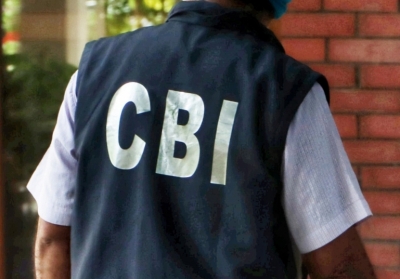By Shekhar Singh
New Delhi, April 9 (IANS) As many as nine states, including Telangana and Meghalaya, have withdrawn the general consent given to the Central Bureau of Investigation (CBI) for probing certain offences.
The information was disclosed by Union Minister Jitendra Singh during the winter session of the Parliament in December 2022.
The minister informed the House that as per Section 6 of the Delhi Special Police Establishment (DSPE) Act, 1946, the CBI requires the consent of the respective state governments to conduct investigations in their jurisdiction.
The state governments had granted general consent to the CBI for the investigation of a specified class of offences against specified categories of persons, enabling the agency to register and investigate those specified matters, Singh elaborated. However, Chhattisgarh, Jharkhand, Kerala, Meghalaya, Mizoram, Punjab, Rajasthan, Telangana, and West Bengal have withdrawn the general consent to the CBI to investigate cases. This move could potentially create roadblocks for the CBI to investigate cases in these states.
Non-BJP ruled states have accused the CBI of “selectively targeting” Opposition leaders.
The withdrawal of consent could also affect the CBI’s ability to investigate cases that have national significance or interstate ramifications. It remains to be seen how the CBI will navigate these challenges and continue to discharge its duties effectively.
This development highlights the need for a comprehensive review of the DSPE Act, 1946, and its provisions related to the CBI’s jurisdiction and powers.
In March this year, a Parliamentary Committee emphasised the withdrawal of general consent for the CBI probe by several states and stated that the existing law governing the federal probe agency has “several limitations”.
The committee has suggested the need to enact new legislation that defines the CBI’s status, functions, and powers.
“The Committee feels that the Delhi Special Police Establishment Act has many limitations and therefore, recommends that there is a need to enact a new law and define the status, functions and powers of the CBI and also lay down safeguards to ensure objectivity and impartiality in its functioning,” it said.
Rudra Vikram Singh, Supreme Court lawyer said that withdrawal of general consent means CBI does not have the general consent of a state government, it is required to apply for consent on a case-by-case basis and cannot act before the consent is given.
“However CBI can continue to investigate cases in a state registered prior to the withdrawal of general consent. In July 2022, the Calcutta High Court, in a case of illegal coal mining and cattle smuggling being investigated by the CBI, ruled that the central agency cannot be stopped from investigating a Central government employee in another state,” said Singh.
“In its order, the High Court observed that corruption cases across the country must be treated equally and that Central government employees could not be exempted from an investigation on the grounds that their offices were located in states that have withdrawn general consent. The judgment also said that withdrawal of general consent and its ramifications would be applicable in cases where exclusively state government employees were involved,” he added.
This order, however, has been challenged in the Supreme Court, where the matter is still pending. Hence, as it stands, the CBI can use the Calcutta High Court order to its advantage to carry on certain investigations until the order is struck down by the Supreme Court.
Gurmeet Nehra, legal scholar and member, Supreme Court Bar Association said that CBI can approach the local court of that state for issuing a search warrant and it can register a case in Delhi and proceed with the investigation.
–IANS
ssh/sha






